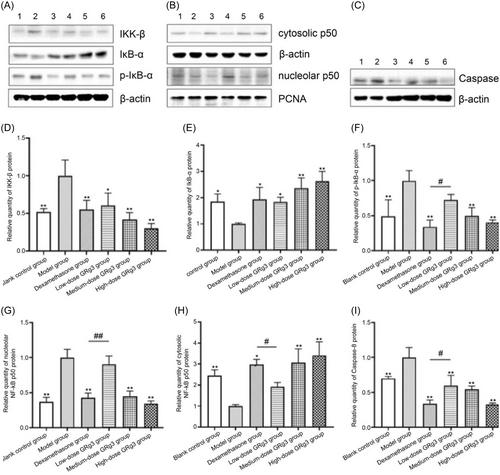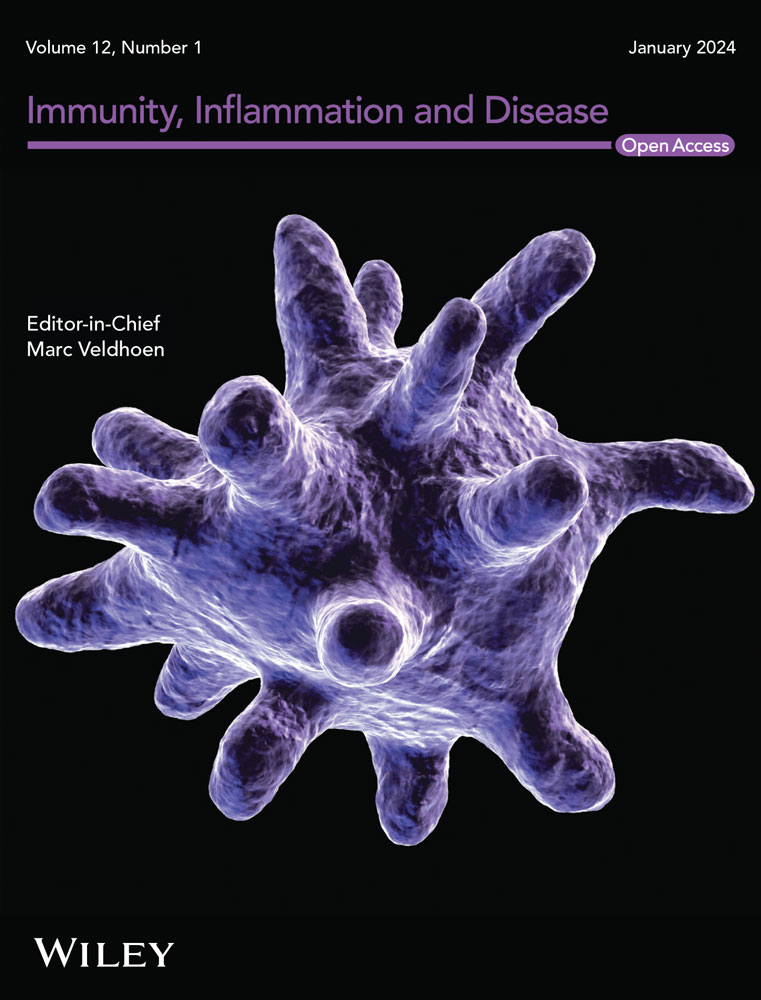Radiation proctitis (RP) refers to rectal injury caused by radiation treatment of pelvic and retroperitoneal malignancies, which has a major impact on the treatment prognosis and quality of life of patients with cancer. The tetracyclic triterpene saponin monomer ginsenoside Rg3 (GRg3), the primary bioactive ingredient in ginseng extracts, has therapeutic effects against RP in rats. Here, we validated its efficacy and elucidated its mechanism of action.
A rat RP model was established in 48 Wistar rats. Rats were randomly divided into control (untreated), irradiation, irradiation + dexamethasone, and irradiation + GRg3 (low-, medium-, and high-dose) groups. After 2 weeks' treatment, serum IL-4, IL-10, and TNF-α levels were tested by enzyme-linked immunosorbent assays. In rectal tissue, Ikbkb, Ikka, and Casp8 mRNA expression was detected by a reverse transcription-quantitative polymerase chain reaction. IKK-β, IκB-α, p-IκB-α, p50, and caspase-8 protein levels were determined by western blot analysis.
GRg3 significantly improved the general condition and histopathological damage in rats with RP. Moreover, GRg3 decreased the levels of factors that promote inflammation (TNF-α) and increased the levels of factors that reduce inflammation (IL-4 and IL-10). GRg3 markedly reduced the activation of NF-κB and caspase-8 signaling pathways.
Thus, GRg3 may reduce the inflammatory response by blocking the NF-κB signaling pathway and improving the balance of inflammation-related factors. GRg3 may also inhibit intestinal cell apoptosis by suppressing the TNF-α/caspase-8 signaling cascade, thereby reducing radiological rectal injury. Our results verify that GRg3 is a promising therapeutic agent for RP treatment and shed light on its mechanism.



